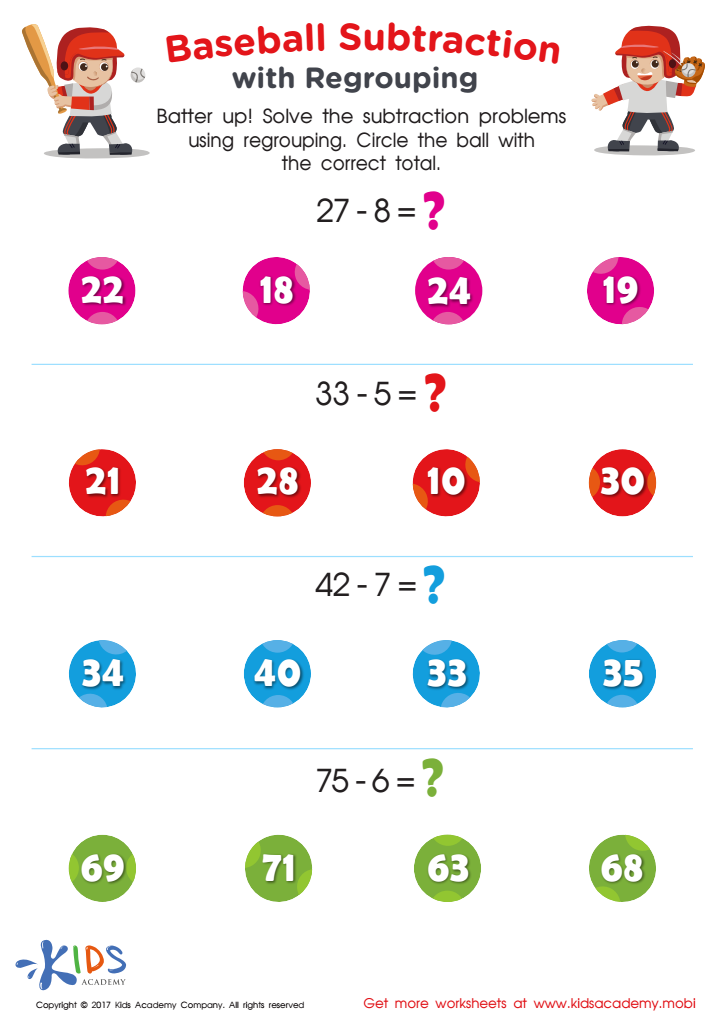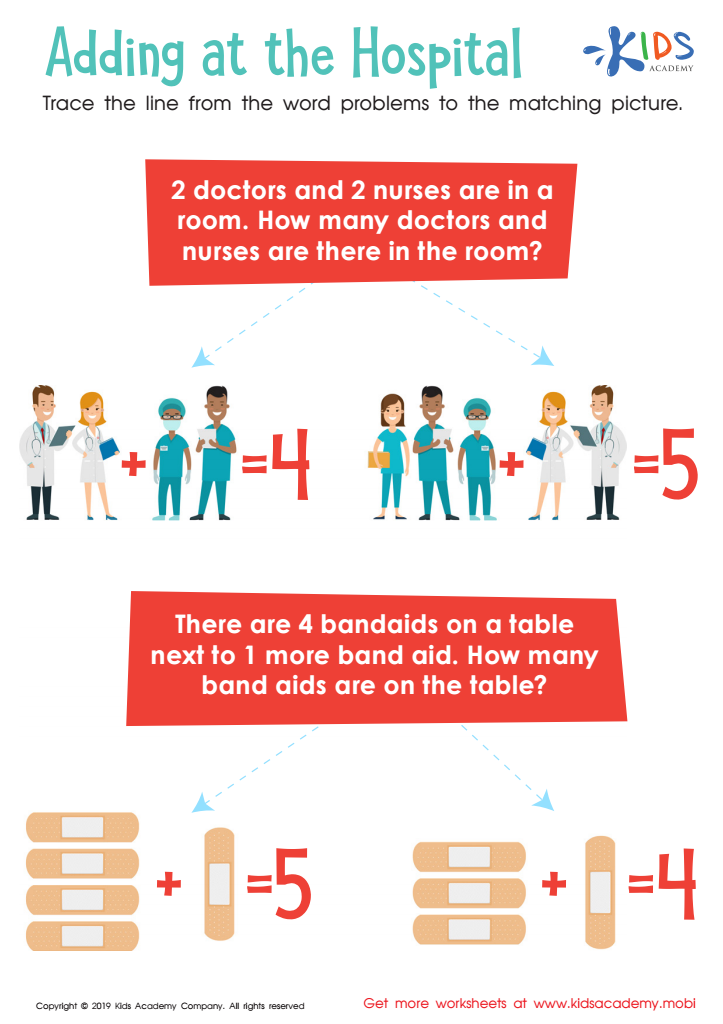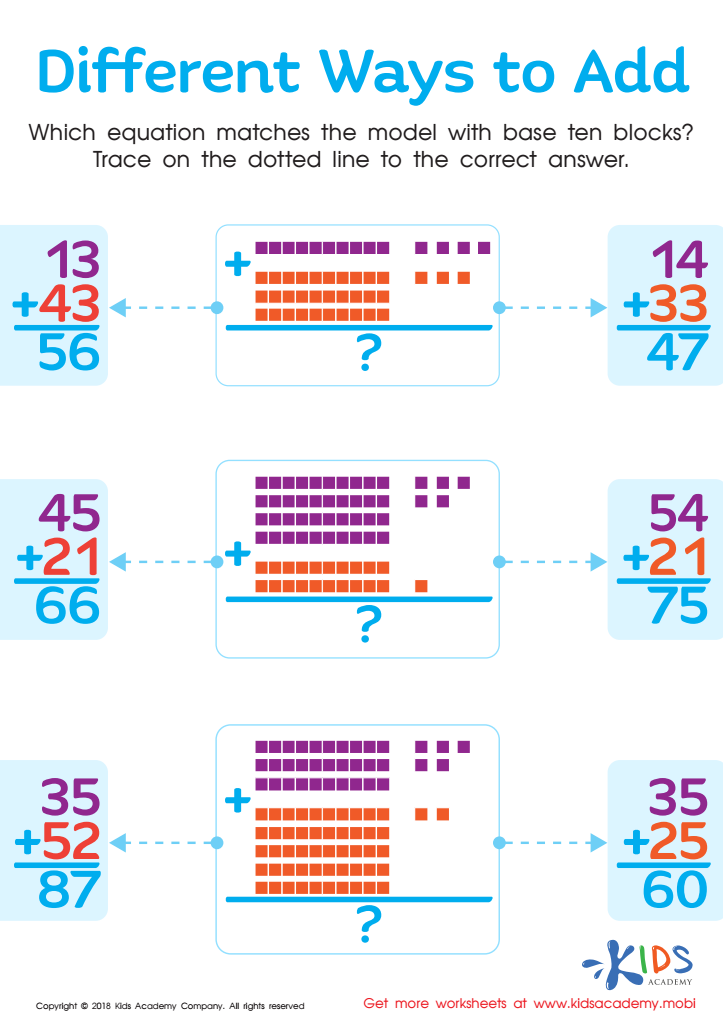Mental math practice Normal Addition & Subtraction Worksheets for 7-Year-Olds
4 filtered results
-
From - To
Enhance your 7-year-old’s math skills with our engaging Mental Math Practice worksheets, designed for normal addition and subtraction. These printable worksheets provide a fun way to develop essential mental math strategies, improving quick thinking and arithmetic proficiency. Our thoughtfully crafted exercises help young learners practice addition and subtraction in an enjoyable format, promoting confidence in their abilities. Ideal for reinforcing classroom learning or use at home, these worksheets cater to various learning styles, ensuring every child progresses at their own pace. Start your child’s math journey today and watch them thrive as they master fundamental concepts in a supportive environment!


Subtraction With Regrouping for 2nd Grade Worksheet


Adding at the Hospital Worksheet


Tricky Problems Worksheet: Part 2


Different Ways to Add Worksheet
Mental math practice in normal addition and subtraction is crucial for 7-year-olds as it lays a strong foundation for their mathematical understanding and overall cognitive development. At this age, children are still developing their number sense and the ability to perform calculations mentally enhances this process. Engaging in mental math helps improve their problem-solving skills, boosts their confidence, and fosters independence in handling numbers.
Moreover, mental math encourages quick thinking and agility in computations, which is beneficial not just in academics but also in daily life situations. It involves recognizing patterns and relationships between numbers, promoting critical thinking. Parents and teachers play an important role in facilitating enjoyable mental math exercises—through games, real-life applications, or fun challenges—that make math an exciting subject rather than a chore.
In addition, practicing mental math cultivates perseverance and resilience, as children learn to approach problems systematically. This builds a positive mindset towards challenges they might face, not only in math but across various subjects. By prioritizing mental math, adults can help nurture a generation that finds joy in mathematics, effectively prepares for more complex topics in the future, and develops essential life skills.
 Assign to My Students
Assign to My Students




















